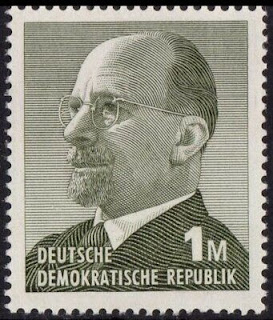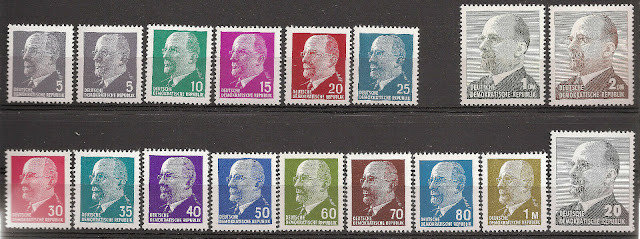Here are some events that happened on June 30th. It could be an event or a person that died or was born on that day
1893 Born: Walter Ulbricht, German soldier and politician (d. 1973)
Walter Ernst Paul Ulbricht (June 1893 – 1 August 1973) was a German communist politician. Ulbricht played a leading role in the creation of the Weimar-era Communist Party of Germany (KPD) and later (after spending the years of Nazi rule in exile in France and the Soviet Union) in the early development and establishment of the German Democratic Republic in East Germany. As the First Secretary of the Socialist Unity Party from 1950 to 1971, he was the chief decision-maker in East Germany. From President Wilhelm Pieck's death in 1960 on, he was also the East German head of state until his own death in 1973. As the firm leader of the strongest and most important Communist satellite, Ulbricht had a degree of bargaining power with the Kremlin that he used effectively. For example he demanded the building of the Berlin Wall in 1961 when the Kremlin was reluctant.
Ulbricht began his political life during the German Empire, when he joined first the Social Democratic Party of Germany (SPD) in 1912, the anti-World War I Independent Social Democratic Party of Germany (USPD) in 1917 and deserted the Imperial German Army in 1918. He joined the Communist Party of Germany in 1920 and became a leading party functionary, serving in its Central Committee from 1923 onward. After the Nazi takeover of Germany in 1933, Ulbricht lived in Paris and Prague from 1933 to 1937 and in the Soviet Union from 1937 to 1945.
After the end of World War II, Ulbricht re-organized the German Communist Party in the Soviet occupation zone along Stalinist lines. He played a key role in the forcible merger of the KPD and SPD into the Socialist Unity Party of Germany (SED) in 1946. He became the First Secretary of the SED and effective leader of the recently established East Germany in 1950. The Soviet Army occupation force violently suppressed the uprising of 1953 in East Germany on 17 June 1953, while Ulbricht hid in the Soviet Army headquarters in Berlin-Karlshorst. East Germany joined the Soviet-controlled Warsaw Pact upon its founding in 1955. Ulbricht presided over the total suppression of civil and political rights in the East German state, which functioned as a communist-ruled dictatorship from its founding in 1949 onward.
The nationalization of East German industry under Ulbricht failed to raise the standard of living to a level comparable to that of West Germany. The result was massive emigration, with hundreds of thousands of people fleeing the country to the west every year in the 1950s. When Soviet Premier Nikita Khrushchev gave permission for a wall to stop the outflow in Berlin, Ulbricht had the Berlin Wall built in 1961, which triggered a diplomatic crisis and succeeded in curtailing emigration. The failures of Ulbricht's New Economic System and Economic System of Socialism from 1963 to 1970 led to his forcible retirement for "health reasons" and replacement as First Secretary in 1971 by Erich Honecker with Soviet approval. Ulbricht suffered a stroke and died in 1973.
East German stamps depicting Walter Ulbricht



No comments:
Post a Comment